- 34
- 51
This man was His Imperial Majesty, Dom Pedro II, Constitutional Emperor and Perpetual Defender of Brazil. He reigned from his father abdication in 1831 (Because his father Pedrão decided he loved 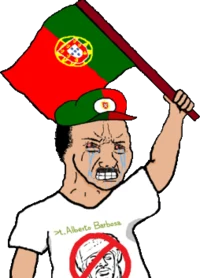 more than us) until he was deposed by seditious republicucks in the army in November 15th 1889. Though he was under a regency council until 1840 due to being a child when his father abdicated and left him in Brazil.
more than us) until he was deposed by seditious republicucks in the army in November 15th 1889. Though he was under a regency council until 1840 due to being a child when his father abdicated and left him in Brazil.
Anyways, D. Pedro II traveled a lot in his late reign. In the 1870s he went to Egypt, the Middle East, Europe and the United States, and I just wanted to share some pictures I found interesting.
So on the second pic he's hiking the Pyramid of Cheops.
This pic was taken during his visit to Jerusalem.
This one is from Niagara Falls
Also, everywhere he went he wrote down his name along with the date. He wrote in on Cheops sarcophagus as well.
During his Eurotrip he met with Friedrich Nietzche on a train trip, on the United States he went to the Philadelphia world fair and was among the first to use Alexander Graham Bell's invention, the telephone (apparently he attracted public attention to Graham Bell's invention). He loved so much it was soon installed on his palace at Quinta da Boa Vista in Rio de Janeiro, and another line in Petrópolis (his summer palace in the Serra Fluminense).
- 5
- 24
- SnappyIsMyWaifu : Literally nothing has changed
- 1
- 18
- 71
- 59
https://en.wikipedia.org/wiki/Sexuality_of_Frederick_the_Great
That he actually did desire men is also clear from statements by his famous contemporaries, Voltaire and Giacomo Casanova, who personally knew him and his sexual preferences. Significantly, Voltaire nicknamed Frederick "Luc". When read backwards, it means "cul" (the vulgar French term for "anus" or "butt").
Voltaire was a bottom, lmao 
Furthermore, at an advanced age, the king advised his nephew in a written document against passive anal intercourse, which from his own experience was "not very pleasant"

Saxony and France, however, repeatedly managed to place good-looking young men near him. Sanssouci was a women-free zone during the Friderican era.”[12] Frederick himself once shocked a dinner party with a misogynist rant against "ghastly women you smelled ten miles around."


One thing I notice from these historical gay men is that unlike modern stereotypes of catty gays befriending queen bee foids, old timey ones were quite misogynist  !nooticers
!nooticers
-
SlaveryforIsrael
: If “blessed are the peacemakers” than Londoners and Parisians are the most loved by God

- 15
- 40
- 1
- 13
- 18
- 42
-
Turkeyvann
: amazing work, thank u

-
Redactor0
: thanks for giving me a place to post it

- 39
- 70
I would like to believe that if you bothered to read all this you've learned something that you can apply to the rest of the world. Because the whole world is fricked up in the same ways that Lebanon is. It's just way worse there. A few things I've learned in my time researching the subject:
One of the first things you'll hear in any mayo midwit's account of what's going on in the Middle East is that all the conflicts are due to "ancient hatreds". Everything would be solved if these barbarian savages would just give up their grudges they've been holding on to since medieval times. That would be a very convenient way to explain everything and make us feel good about ourselves because we're too civilized to have ancient hatreds. The problem is, it doesn't hold up to the slightest bit of scrutiny. How was every faction allied with practically every other faction at some point in those 15 years if they can't let go of their hatred? By the end, even the Lebanese Forces and Palestinians who had started the war in the first place were allies. Walid Joumblatt worked for the guy who killed his father for decades. If anything, the Lebanese are notable for how forgiving they are. When they fight each other it's because that makes sense to them in the immediate situation. People in Lebanon have always had many good reasons in the present to fight each other without needing any ancient hatreds.
Kamal Joumblatt with his sister, Linda al-Atrash. Bashir Gemayel found out which Christian thugs killed her and offered him their names. He was like "nah, forget about it ".
Unfortunately, while most people feel compelled to participate in violence by the situation they're stuck in, some just like the violence. No matter how perfect your society is, you're going to have a certain number of sociopaths who just have no interest in the good of the community. They'll do anything they can to get ahead. That's why it's important for society to figure out how to control them. We have to make sure that killing and stealing isn't worth it. In Lebanon, the government institutions that normally keep evil people in line fell apart. When society is broken up into a bunch of little 500-man militias, it's extremely difficult to hold criminals accountable. There were dozens of cease-fires in the Lebanese Civil War and all but the last one broke down. Usually it was because some low-ranking guy wanted the war to continue so he started shooting.
When you don't keep your people under control, this is what happens.
The breakdown of public order is most obvious in kidnappings and assassinations, the two things Lebanon was most famous for. It began at the start of the war when checkpoints were set up and people were caught on the wrong side of the lines from home. Why not shake them down a little? But without law enforcement it quickly became obvious that you just grab someone and demand a ransom. If they kidnapped one of your people, often the best solution was to kidnap one of theirs to swap. It spirals out of control very fast. Likewise, it didn't take long for the militias to realize that during the many cease-fires that made up most of the 15 years, you could just drive into your enemy's neighborhood and shoot him at his front door. As security got better you needed to [put a bomb on his car](https://, and when they kept all their cars in garages you had to put a huge bomb in the trunk of another car and detonate it as he drove by. Investigating these bombings during a civil war was impossible (and isn't much easier in our time so the only way to respond was to guess which militia was responsible and bomb them. We'll never know how many times a third party assassinated someone to push two rival groups into war.
TWA Flight 847, June 1985. Eventually simple kidnapping isn't enough. If you've got dozens of prisoners held by your enemies, hijack an airplane and grab dozens of hostages to trade for them.
My main conclusion is that nobody has fixed Lebanon yet because it's really really hard to. If there was an easy solution someone would have figured it out by now. Everyone knows that to make any fundamental change the system that pits the sects against each other must be broken. Many people with good intentions have tried. All of them failed. Most of them were killed. We can't expect to see anyone succeed in our generation. But maybe the Lebanese of today can go part of the way, rooting out corruption and building ties across sectarian lines. Their children could be the ones who finally break out of the cycle.
Sep 9, 1982. The US Marines' mission had been a complete success, escorting the Palestinian troops to their evacuation ships. The 15 day assignment had been carried out without bloodshed. They would be back 20 days later on an open-ended mission that was not accomplished.
So what can we do from the outside to help? The Americans came with good intentions but that wasn't enough. The Israelis came with overwhelming force and that wasn't enough. In the end it was the Syrians who finally imposed their ending on the civil war. They had what the other powers lacked: the willingness to get their hands dirty. I don't just mean violence (although that is one part of it), I mean being willing to spend money and energy, to kill whoever is in the way, to send your own people to their deaths. And you have to be willing to do that year after year, however long it takes. The Syrians had that because Lebanon had to function in order for Syria to function. Despite being a small, poor, backward country, Syria managed to outlast all its rivals because Lebanon was that important to them.
Syrian troops enter Beirut, November 1976. They came to help at first. By the end of the war they had fought the Palestinians, Christians, Israelis, and occasionally their supposed allies.
So to answer the question, the first thing we need to do before we try to help is to ask ourselves what kind of commitment we're willing to make. For almost all of us, Lebanon is just a little country far away that doesn't have the slightest impact on our lives. We're just not going to sacrifice as much to impose our will there as Syria or Israel or the main regional powers. We've got to be realistic and only get involved if we've got the patience to keep up that level of involvement for years. Sending in the Marines now might solve a short-term crisis, but it's not going to get to the root of Lebanon's problems because they can't stay there long enough.
The ruins of the US Marine barracks, Oct 23, 1983. An expertly-driven suicide truck bomb leveled the building, kill 241 men. The same day a similar attack against the French killed 58.
At this point, we can probably do the most good by going after money laundering. The corrupt elite have drained enormous amounts of money from Lebanon and stashed it in Europe. If we cut that flow they won't keep getting richer and more powerful. If we find the money they've already laundered and seize it, we cut their balls off and get the cash to fund reconstruction at the same time. When corruption isn't so obscene we can make cautious investments in rebuilding infrastructure, especially targeting projects that force the different sects to cooperate to benefit from it. We can train and equip a Lebanese Army capable of maintaining order and also deterring the aggression of Syria and Israel. Whatever we do, we need to know what our limit is and not get sucked into trying to do more. Maybe with that help, the Lebanese can save themselves.
- 54
- 35
!historychads !anticommunists what's our assessment? Incompetent moron? Bloody tyrant? A product of his time? I already know our resident commies will say he got what he deserved. His wife was extremely r-slurred, ignored all of based granny Victoria's advices and was probably boned by a creepy peasant.
!neolibs was Sergei Witte /our/ guy? Was Stolypin taken from us too soon?
- bot : gay
- 63
- 82
Nobody is more Lebanese than the Joumblatt clan. They could not have grown out of any other environment, and perhaps Lebanon as we know it wouldn't exist without them. Before I can explain who these people are, first I have to explain what a Druze is.
Don't worry, I'll be quick. Little can be known for certain about the Druze religion so I can't take too long anyway. It is highly secretive, passed down through the generations to select initiates so even most Druze don't fully know what it's about. At various times they have pretended to be Christian or Muslim to escape persecution which muddies the waters even more. Their most famous belief known by outsiders is reincarnation. They believe that their souls will be reborn in Druze of the next generation and so on. Like so many other ethnoreligious groups in the Middle East, they do not intermarry with outsiders so they have remained distinct for a thousand years or more. Their origins are debated and that's a story for another time.
The Druze were already here when the Crusaders arrived and built Beaufort castle overlooking their lands.
The Druze mostly settled in the Jabal Druze region of modern Syria and the southern part of Mount Lebanon, where they were mixed with Christians. They were ruled by a few dominant families. The Joumblatts are believed to have migrated from Kurdistan in the 1600s and somehow become one of them. Since then they have competed with other clans like the Arslans and Shehabs, but by the mid 20th Century at least they have been undisputed kings of the Druze more or less. They also had power as feudal landowners like those who ruled over the other sects. Their control of the Druze people and territory is so complete that when another faction leader said "Walid Joumblatt could move to Brazil tomorrow and he would still be leader of the Druze" he was not exaggerating.
Mukhtara Palace, far up in the heights of the Chouf, the ancestral home of the Joumblatts.
1975
This very medieval community adapted well to modern times. Kamal Joumblatt emerged as one of the most powerful political figures in Lebanon when it gained independence. He founded what is called the Progressive Socialist Party, but it is not really a political party, just a front for the Druze so they can engage in modern parliamentary politics. His abilities were recognized in the nation as a whole, and as civil war approached he became leader of the Lebanese National Movement, an alliance of groups that were Muslim or leftist opposing the Christian-only Lebanese Forces alliance on the other side. They demanded that the Christian elites give up their stranglehold on power and give equality to Muslims. The LNM's military forces, including a fairly disciplined Druze militia, were not that impressive but politically it represented the Sunnis, Druze, and many Shi'a and Christians as well. This broad base of domestic support let him rely on the Palestinians to provide most of the firepower backing him up.
Kamal's daughter Linda el-Atrash lived in East Beirut. A few of Chamoun's goons didn't want non-Christians living there so they murdered her.
The LNM was also supported to some extent by Syria. Hafez Assad, himself a leftist Muslim revolutionary in his younger days, sympathized with them and wanted to see them carve away some power from the Christians. He imported weapons from the Soviet bloc and then passed them on to the groups in the LNM and the Palestinians. But Assad and Joumblatt did not see eye to eye on everything. Joumblatt wanted to break the back of the Maronite elite that had dominated Lebanon since the French occupation and make sure it never could rise again. Assad only wanted to weaken them, not to win a total victory. He tried to explain that in a country like Lebanon you could not win through brute military force, no matter how strong.
1980
Kamal Joumblatt was dead. He came so close to victory that he refused to compromise. Finally, with East Beirut in danger of being surrounded, the Syrians invaded to stop him and took over most of the country. In 1977 his car was ambushed on a narrow mountain road in his native Chouf region and he was gunned down. There have been many suggestions thrown out of who pulled the trigger and what exactly their motive was, but we can assume that Assad approved of the hit because Joumblatt basically was not being a team player.
Walid Joumblatt, 1978.
His son Walid succeeded him. Walid has been described as "eccentric". He was a young playboy who enjoyed the status that his father's position had given him but hardly seemed capable of filling his shoes. But he was more shrewd than he was given credit for. As soon as his formal mourning period had ended, he immediately went to Damascus to show his fealty to the man who had just killed his father. As long as Assad was the most powerful man in Lebanon, Joumblatt would be on his side.
In his later days he looked a lot like Radnor, the mentat of House Harkonnen in Dune 2.
1985
Joumblatt had gotten through the Israeli invasion practically unscathed. Recognizing that overnight the Israelis had become the dominant power, he reached out to them through the Druze community in Israel and offered free passage through his strategically vital territory. But now they were evacuating troops from his homeland, the Chouf. The Lebanese Forces were coming to massacre the Druze population until they fled, leaving the district to the Christians alone. Walid sent his own troops to reverse this process.
As soon as the Israelis pulled out of the Chouf, fighting broke out.
Joumblatt was a big player in Beirut as well. With a loyal militia and control of strategic heights overlooking the city, he proved a useful ally to the bigger factions. When the US-backed government collapsed, the PSP rushed into West Beirut along with Amal and Syria's other allies. As Amal began the War of the Camps against Fatah, these allies began to pursue their own ends in a bewildering series of betrayals and surprise attacks. Joumblatt did not rely as much on Syria as Amal did. He managed to maintain good relations with many of Syria's enemies, including Fatah, and even distant powers like the Soviet Union. This gave him some wiggle room when dealing with Assad.
The Druze tore down a Lebanese flag in Beirut and replaced it with theirs, provoking a war with Amal. West Beirut was devastated yet again. I'm not sure anybody knew what the heck they were fighting for in this one.
1990
The chaotic battles over West Beirut were now calming down as General Aoun emerged as a real threat to the entire system the militias operated in. One of his key aims early on was take control of or blockade the many small ports controlled by militias. Most of their income came from smuggling through these, and the Druze were no exception. Joumblatt now joined with the other faction leaders and Syria to face this new threat.
Jounieh in better times. This was one of the small ports used by the militias, in this case the Lebanese Forces.
The Druze did well in the Taif negotiations. The Christians, Sunnis, and Shi'a took the three most important offices in the government, but Joumblatt ended up in a position to steer large amounts of graft to the Druze and his cronies in the form of jobs and government investments. In a country where power is exerted through patronage not violence, Joumblatt was in his element.
Walid made it to the end of the war without being assassinated but there were attempts, like this one in 1982 that nearly killed him.
Epilogue
Joumblatt had a great deal of power in the new Syrian-dominated government. He was able to stretch his tentacles into bureaucracies, businesses, and real estate far from his mountain stronghold. In what can only be called a sick joke, he was made Minister for Refugees even though he had made many of them refugees in the first place by ethnically cleansing Christians from the Chouf.
If Kamal Joumblatt died because he was too rigid in his beliefs, Walid has survived because he's the ultimate pragmatist. No ordinary person could ever hope to follow all the machinations of the warlords-turned-politicans in dark smoke-filled rooms, but you could be pretty sure that whatever side he was on was winning. Partly this was because of the political and economic power he wielded, but it was mostly just because he always flipped to whatever side was stronger. He can swing back and forth like a pendulum in a matter of weeks.
Meeting with Hezbollah's Hassan Nasrallah during one of the many periods when he was temporarily Walid's bestie.
Joumblatt made one big gamble after the war, one which committed him to a certain path he couldn't back out of. In 2005, the Cedar Revolution broke out and Syria finally pulled its troops out of Lebanon. He believed that this was part of a great upheaval across the region, with the US invasion of Iraq and the growing assertiveness of its Gulf allies. In an uncharacteristic mistake, he drank the neocons' koolaid. He switched over to the anti-Syrian side and vocally denounced the Assad regime. Now, after 28 years, most of them spent allied with Syria, he suddenly was angry over his father's murder. But he had miscalculated. Far from spreading American influence across the region, the superpower was so tied up in Iraq that it lost power throughout the region, with Iran filling in part of the void. The next year Israel blundered its way into a major war with Hezbollah that it was not prepared for and suffered a humiliating defeat. In 2008 Joumblatt made a bold attempt to seize the fiber optic network that Hezbollah used to communicate with its troops. He didn't have the force to back it up. Hezbollah hardly even needed to fight as its allies trounced the PSP and Sunni militias in a few days. Later on the Arab Spring and the Syrian Civil War seemed to offer opportunities but in the end the alliance of Hezbollah, Syria, and Iran remains in a dominant position over Lebanon.
Joumblatt with Bashar al-Assad, 2010. You didn't think they'd stay mad, did you? They reconciled somewhat when it was clear that Hezbollah couldn't be defeated.
Joumblatt has now retired to smoke hashish and shitpost on Twitter from his mountain stronghold. There are different ways you could judge him. His scheming and backstabbing only made the civil war worse for the nation and his corruption in peacetime has kept it impoverished. But if you judge him as the leader of the Druze, it's hard to say anyone could have done better. He guided his tiny sect of a few hundred thousand people surrounded by dangerous enemies on all sides through a generation of war and crisis. In the end they were exactly where they started, still living in their ancestral homeland. Many other factions involved in the Lebanese Civil War can only wish they had broken even.
Walid and Oscar.
- 8
- 43
On the Lebanese border.
— B.M. (@ireallyhateyou) June 12, 2024
WHAT THE ACTUAL FUCK?! What year is this? pic.twitter.com/ggbOtlNJxU
- 43
- 74
Let me introduce the only distinction among the Palestinians that matters to you: Fatah vs. everyone else.
Fatah was founded by Palestinian exiles in 1959. At first it was just a pawn of the Egyptians, but when Egypt suffered the shocking humiliation of the Six Day War, it was able to wiggle its way out. With the occupation of the West Bank and Gaza many more Palestinians fled to refugee camps in the other Arab countries. Fatah managed to steal the credit for a Jordanian victory and the legend of the Palestinian fedayeen was born. It became a relatively independent organization. Of course it relied on donors from the Gulf States and Soviet bloc aid but it had enough patrons that it didn't fall into the control of any one of them. Fatah's leader Yasser Arafat tried to speak for the movement as a whole, but he could do little to restrain the other groups.
The Arabs had assumed that always assumed that Egypt would eventually roll up its sleeves and wipe out Israel once and for all. With the Egyptians humbled, there was desperate need of a new symbol of resistance.
Many Palestinians fled to refugee camps in Lebanon during the Nakba. As time passed and there was no hope of returning home in sight, the refugee camps became densely-packed slums. They were fortified and networks of secret tunnels were dug underneath, neccessary precautions since the Israelis bombed them ocasionally. All of the Palestinian groups I'm going to write about here were born in this environment: awful living conditions, no honest jobs, constant harrassment by the Israelis and the police of whatever country they were in. Many Palestinians would do just about anything for a job to feed their family, and if you weren't hired to work in the Gulf States then joining a militia was pretty much all you could do.
Nasser loved watching Esther Williams swim around. He had American diplomats bring him the reel when a new one came out. Maybe he should have been paying more attention to his air force, am I right!
Besides Fatah there was an alphabet soup of other Palestinian militias that claimed to be socialist revolutionaries, many of them doing the bidding of a certain foreign state: PFLP (Syria), PFLP-GC (Syria), as-Saiqa (Syria), Fatah Intifada (Syria), PLA (Syria) DFLP (Soviet Union), PCP (Soviet Union), ALF (Iraq), Abu Nidal's gang (Syria then Libya then Iraq). Most were splinter groups of the PFLP or Fatah that began when one subordinate commander decided he didn't like taking orders. Their foreign patrons gave them enough money to hire soldiers so they had an importance far greater than their support among the population.
PFLP fedayeen, 1969. These guys are supposed to replace Egypt?
These groups were responsible for most of the spectacular terrorist attacks seen in the West. Any time Arafat tried to negotiate, one of them would do an attack to embarrass him. (Fatah did do terrorism as well, including some of the worst cases.)
Hijacker Leila Khaled. She raised a lot of eyebrows in the West but nothing she did brought her people any closer to freedom.
1975
After being driven from Jordan in 1970 for trying to take over the country, the Palestinian leaders took up residence in Lebanon. This obviously caused a lot of consternation among Lebanese and Arafat had a hard enough time just trying to get the different groups to stop shooting each other in the refugee camp. He knew that this was their last chance. If they were driven from Lebanon they would have nowhere to turn. Arafat tried to keep the situation from completely spiraling out of control, but the other factions would not stop provoking the natives. The location of the camps around Beirut made it virtually impossible to avoid trouble, as they had to go through densely populated parts of the city to travel between them. Arafat's money, prestige, and relatively strong and cohesive military force gave him great influence in Lebanon's politics as well as Palestine's but there was no way to tamp down the lid forever.
Speaking of terrorism, Day of the Jackal came out a couple years earlier. A journo found a copy of the original Fredrick Forsyth novel in what he believed to be the luggage of a notorious Palestinian terrorist. This is where the nickname Carlos the Jackal comes from. Great movie btw.
Arafat commanded the respect of the bulk of the population in the refugee camps. There were three around Beirut and one just outside of each major city. Fatah had a large force of militia with little or no training, but it also had an elite force of men who were trained up to the standards of real soldiers. Some had been trained in the Jordanian Army before 1970 or the Soviet bloc. This little army would amount to very little in a big conventional war, but there were few men in the warring Lebanese factions who were on their level.
The Hotels War pitted local Sunnis, Lebanese Army defectors, and Palestinians against the Lebanese Forces.
The radical groups had their own militias but they were poorly trained and disciplined. They hired anyone they could, even many Arabs from other countries. In a war they might be expected to defend their own neighborhoods but not much more. Airline passengers were the only target they could outfight. They were especially resentful of Fatah at this time because Arafat had just begun opening up the idea of negotiations with Israel.
1980
It was the height of power of the Palestinian refugees. The 1975-1976 war had been hard on the Palestinians, with the entire Tal el-Zaatar refugee camp razed. They were now tightly intwined with the local Sunnis and their miltia Mourabitoun. But while Arafat hadn't managed to keep the peace, he at least kept the Syrians from taking complete control. They stayed out of a large area in the south of the country, including the border. Lebanon's army had disintegrated and couldn't stop them. So the Palestinians took over this area, soon known as Fatahland. They now had direct access to the border. Their artillery shelled Israeli towns sporadically, trying not to be caught in the enemy airstrikes that often followed. Enterprising terrorists also discovered a new way to attack. They could get around the border on inflatable boats, land on the beach, and find some Israeli target to attack. Of course it was always a bus or a school, but hey, at this phase of the revolution you can't expect us to take on soldiers.
The Soviet 130mm gun. Designed for long range, it can hit targets 27.5km away. This gave its operators plenty of room to hide the massive gun in.
1985
The Palestinian refugees were now virtually powerless in Lebanon. When they surrendered Beirut, they were scattered into distant exile in several Arab countries. The leaders were settled in Tunis, 2000km away from the enemy. To add insult to injury, the Israeli commandos occasionally made it that entire distance to pop up in Tunis and kill one of them. Fatah and its supporters had always imagined that it would build itself up until someday it could fight Israel in a final war of liberation, but now it was clear that trying to attack Israel from the outside was a dead end. From now on, the Palestinian cause would be taken up in the occupied West Bank and Gaza.
An attempt was made to capture Tripoli and use it as a base to bring Fatah back to Lebanon. Rather than side with Arab nationalists and Communists like he had in the past, their allies now were Islamic fundamentalists, a sign of how the old causes were dying out in favor of the new jihad. They were opposed by Syrian troops as well as several thousand Palestinians who had defected over the years to support Syria instead. The battle was over quickly and Arafat sent back into exile in a farcical repeat of the evacuation from Beirut.
1990
Some Palestinians loyal to Arafat still remained in Lebanon and they were still taking part in fighting. Now they were only helping the stronger forces like Hezbollah. They were able to hold onto their refugee camps for now, but they were no longer an independent player in Lebanon. All of the Palestinian movement's attention and energy was now focused on the occupied territories. The fantasy of fedayeen coming from the refugee camps to liberate the country was over. Arafat still commanded enough respect that he could represent the Palestinians in the new peace process that was developing.
The crew of the Enterprise was in some pretty serious trouble too! Part I of "Best of Both Worlds", the Borg invasion of Earth, aired in 1990.
Epilogue
In 2007 a splinter group of a splinter group of Fatah in the Naher al-Barid refugee camp outside Tripoli declared their allegiance to al-Qaeda. They beheaded several soldiers in a cowardly sneak attack. Since the army is the only institution in the country that unites all sects, this pissed off everyone. The camp was eventually flattened by artillery and bulldozers after a brutal siege, just like during the Civil War. I guess it was kids trying too hard to be cool like their dads.
Ain el-Hilweh outside Sidon remains. If you want to experience Escape From New York in real life, this is as close as you're going to get. Lebanese police and security forces are not allowed in. The local population settles everything themselves. This often means gang-style shootings but can escalate quite a bit. Stray RPGs have been known to land in Sidon. These days the battles are between Fatah and Islamists. Now they're fighting over buildings, not countries.
This one was pretty good too. I mean it's not like a classic or something but it's enjoyable.
- 15
- 47
Louis XIV most famous lover, Madame de Montespan fell out of grace after accusations of witchcraft
https://en.wikipedia.org/wiki/Affair_of_the_Poisons
In 1675, the priest Lécuyer refused to give her absolution, which was necessary for her to take Easter communion, a requisite for all Catholics.[14] Father Lécuyer raged,
Is this the Madame that scandalises all France? Go abandon your shocking life and then come throw yourself at the feet of the ministers of Jesus Christ


Long assumed to have been involved in the infamous Affaire des Poisons, Madame de Montespan has never been conclusively implicated. Gabriel Nicolas de La Reynie, Paris' first Lieutenant General of Police and the chief judge of the court, before whom the famous poisoning cases were brought, heard testimony that placed Madame de Montespan's first visits to the so-called witch Catherine Monvoisin, known as La Voisin, in 1665.[6] In 1666, Madame de Montespan supposedly went so far as to allow a priest, Étienne Guibourg, to perform a black mass over her nude body[17] in a blood-soaked ceremony, which also, allegedly, included infant sacrifice.[18] Whatever the truth in these allegations, in July 1667, Madame de Montespan became the king's new mistress even though Louise de La Vallière was carrying his child
!historychads !nooticers thoughts? Was the Marquise de Montespan a satanic whore who seduced le Roi Soleil with black magic?
A bit about the affaire des poisons
The case began in 1675 after the trial of Madame de Brinvilliers, who was accused of having conspired with her lover, army captain Godin de Sainte-Croix [fr], to poison her father Antoine Dreux d'Aubray in 1666 and two of her brothers, Antoine d'Aubray and François d'Aubray, in 1670, in order to inherit their estates. There were also rumours that she had poisoned poor people during her visits to hospitals.
After being accused, she fled but was arrested in Liège. Madame de Brinvilliers was tortured and confessed, was sentenced to death, and on 17 July was tortured with the water cure (forced to drink sixteen pints of water) and then beheaded, and her body burned at the stake. Her alleged accomplice Sainte-Croix did not face charges because he had died of natural causes in 1672.



- 12
- 70
I caught some bad vibes from the chuds on the last one. Some of you don't understand the concept that the bad guy has his own perspective which is worth knowing even if we don't agree with it. Here's Israel's turn. I can't promise a happy ending because there wasn't one, but these are the events that mattered to them.
Part of a series:
Israel, like Syria, does not have the luxury of simply ignoring Lebanon. For most of its history somebody has been there shooting at them or trying to
shoot at them. Egypt and Jordan had learned Israel's enormous superiority in high-intensity mobile warfare and made peace. Israelis hoped to one day do the same with Lebanon. Once all the neighboring Arab were persuaded to give up, the wars would finally be over.
1975
Hollywood was in the middle of its disaster movie craze just as the Middle East was in the middle of its hijacking craze. (Don't watch these movies. They're dumber than Transformers.)
Israel never had good relations with Lebanon, but at least it wasn't a base for constant raids like Syria, Jordan, and Egypt. That changed in the late 1960s when Palestinians from the refugee camps began going to the border and attacking Israel. The Lebanese army tried to stop them but were not always successful. The problem grew far worse in 1970 when the Palestinian leaders were driven out of Jordan and made Beirut their headquarters. From there they hijacked airliners, attacked Israelis in Europe, and dramatically increased raiding across the border. They killed civilians on buses, in their homes, or even at school. The Palestinians didn't kill many Israeli soldiers but somehow always managed to kill a lot of children. Most of these attacks were done by fringe far-left groups but Arafat and his "moderate" faction Fatah participated as well.
Terrorists were able to board in Beirut, go anywhere in the world, hijack a plane, and bring it to the Middle East.
Obviously this had to be stopped. The Israelis didn't want a full scale war in Lebanon but they had to do something. As early as 1968 they began carrying out commando raids to pressure the Lebanese into getting the Palestinians under control. But by 1975 it was clear that the Lebanese state couldn't rein them in if it tried. The commando raids now were turned to directly strike the Palestinians themselves. A raid against Fatah in Beirut succeeded in assassinating the targets but ended up being counterproductive. The Palestinians pointed out that the army was unable or unwilling to protect them so they needed they needed arms to protect themselves. Many Lebanese agreed with them. This was one of the major triggers leading up to the outbreak of the civil war.
At this point it wasn't enough just to stop terrorism. As civil war loomed, there was a real danger that the Palestinians would win and take over the whole country. With their own international airport, seaport, and complete access to the border they could dramatically increase their terrorist activities. Beyond their own strategic interests, many Israelis saw the similarity of the Lebanese Christians' plight to their own. They were an island in a sea of hostile Muslim powers that would love to drive them into the sea. During a previous crisis in 1958 Israel had provided weapons to then President Chamoun to stop the Syrians from taking over. Now they were in contact with his son Dany Chamoun about possibly doing the same again.
1980
Blondie's "Call Me". Hafez el-Assad probably hummed this to himself when he was putting military pressure on one of the Lebanese factions and waiting for them to call and ask for a truce.
The Christian militias didn't take up the Israeli offer as their situation was so desperate that they called for a Syrian invasion instead. But they had quickly tired of the Syrian occupation and went back to the Israelis for support. The Israelis provided guns, tanks, ammunition, and even uniforms. The year 1980 was relatively quiet in most of the country but there was a tense standoff between the Lebanese Forces, Palestinians, and Syrians.
The SA-6 SAM system. It was deadly to Israeli planes in the 1973 war and and they did not want to repeat that experience. Through the Americans a convoluted set of rules were agreed to. The Syrians could move their SAMs into certain places in the Bekaa Valley, but only if they didn't camoflauge them, and so on. Of course both sides ended up breaking these rules as soon as tensions rose.
At the border it was anything but quiet. The Palestinians were shelling Israeli towns with heavy artillery and rockets. Eventually they were able to negotiate a cease-fire through the Americans, the first time that Israel had made any kind of deal with the Palestinians. But it was only a matter of time before they would start shooting again and send more terrorists by boat to hijack more school buses. No matter how many bombs they dropped or houses they destroyed, the enemy would not stop. Something had to be done to push them back away from the border. In 1978 they had sent in a large force to sweep across the border all the way up to the Litani River but it failed to catch many Palestinians, who retreated before the overwhelming power of the IDF but moved right back into place as soon as they left.
Remains of the bus hijacked in the Coastal Road massacre, where 38 civilians were killed, including 13 children.
Temporarily supressing the violence was not good enough. A permanent solution was needed, one that would keep enemies away from the border for good. Some Lebanese army units in the south defected and became the nucleus of the South Lebanon Army. This was a force under Israeli control whose mission was to block the Palestinians from getting to the border. But the border was too long for a few thousand men to patrol and few Lebanese wanted to join it. Those who did were often motivated by the $300/month salary and couldn't be relied on. The SLA was a step forward, but the bizarre little ministate of 180,000 people they created in the IDF-occupied "security zone" could never sustain a large fighting force or be recognized as legitimate by the rest of Lebanon.
The extent of the security zone. On the coast you can see Sidon to the North and Tyre to the south.
Some Israelis saw an opportunity to go much further than the SLA. At first they had sent weapons to all the Christian militias through Dany Chamoun and his NLP, but soon they got directly in touch with the Lebanese Forces. Their leader, Bashir Gemayel, was charismatic, ambitious, and Maronite, all qualities that were needed to become President of Lebanon. He had just defeated and absorbed Chamoun's forces leaving no Christian rivals. Maybe he could unite the whole country? Then he could sign a peace treaty with Israel and drive out the Palestinians.
Shermans used by the SLA. With upgrades, the old WW2 tank was still effective against the poorly-equipped troops they usually fought against.
1985
Bashir Gemayel was dead. He had managed to get elected with the help of the Israeli invasion but he refused to sign the peace treaty. It didn't matter. The Syrians had him blown up anyway. He didn't even live long enough to be inaugurated. There was nobody else who could take his place, so there was no purpose to having Israeli troops occupy half the country. Their project to install a friendly government in Beirut had been a complete fiasco. The prime minister resigned and the defense minister Ariel Sharon was fired and disgraced. (There were no consequences for the Lebanese involved. Their leader was made a cabinet minister like nothing had happened.) Now in 1985 the IDF was in the process of pulling their troops back from near Beirut to the security zone.
IDF Headquarters in Tyre after being hit by a suicide car bomb, killing 75 Israelis and several prisoners, 1982. They were dangerously exposed to this kind of attack as long as they occupied such a large and densely populated are.
They could at least be glad that they achieved their first objective, to drive the PLO out of Lebanon. The refugee camps were still there and still full of desperately impoverished Palestinian civilians, but the soldiers and terrorists were gone. Arafat had not just been pushed back from the border. He had been pushed back 2,000km to exile in Tunis. In the process the invaders had devastated half the country and killed tens of thousands. They left behind them new enemies. Amal was now actively fighting against them and Hezbollah came into existence in large part due to the invasion. These forces were not as dangerous as the Palestinians had been, but now it was necessary to keep IDF troops in the security zone permanently to keep them away from the border.
It might be boring out there, but at least you have your walkman.
1990
At the end of the Lebanese Civil War, it was the Syrians who dominated Lebanon. For Israel this was much worse than a friendly Lebanese government but at least it was better than the Palestinians taking over. The security zone would have to stay in place indefinitely until some big change happened in Lebanon to disarm Hezbollah, but the Israelis understood now that that big change wasn't going to be them. For the time being, it wasn't that bad. They had chosen easily defended positions to include in the security zone so it was much better than fighting on their own border. And these Hezbollah guys really didn't know how to fight.
Beaufort Castle. A lot of Israelis guarded this place over the years. Its view was just as important in modern warfare as it was to the Crusaders.
Occupation duty was dull and unpleasant. It cost money and diverted troops away from training and more important fronts like the West Bank and Gaza. As long as it continued no Lebanese would negotiate with them. But it was effective in drastically reducing the shelling hitting villages inside Israel. It seemed like it might go on forever.
The view looking down from Beaufort castle.
Epilogue
The situation quickly changed in the late 1990s. Hezbollah learned over the years, going from a bunch of angry hillbillies yelling "Allahu Akbar!" on top of a hill to a well-organized, trained, and experienced fighting force. They had become better at fighting this kind of low-level war of attrition than the Israelis. In theory Israel could just launch a massive attack and change it back into the kind of high-intensity war they were good at. This was tried in 1993 and 1996, but domestic politics and diplomacy wouldn't let them go far and they accomplished little. Eventually those troops would have to go home someday anyway.
The TOW antitank missile. Iran gave Hezbollah ones that had been first delivered to it through Israel in Iran Contra. Nobody could complain about it without reopening that can of worms.
By the late 1990s the tide was turning fast. Israeli tanks, once so formidable to the guerrilla fighters, became easy targets when they got guided antitank missiles. The SLA and its intelligence network was collapsing. Two incidents in particular made the public wonder if it was all worth it. In 1997 two helicopters collided killing 73 men. Even more disturbing, an elite special operations unit was lured into an ambush and 12 of 16 killed. Clearly Hezbollah had better intelligence and knew how to use it.
Hezbollah intercepted unencrypted transmissions from the drone, allowing them to watch the Israelis in real time through their own camera.
In 2000 the IDF began withdrawing. With the situation crumbling around them, they retreated back into Israel. The SLA disintegrated with troops and their families rushing to the border to for asylum. It wouldn't be the last time there was fighting on this border but at least on this day all of Lebanon was finally at peace for the first time in 25 years.
- 4
- 12
Qing empire - Largest economy in the 1600s. Collapsed in 1912.
Mughal empire - largest economy in 1642. Ended in 1739.
Ottoman empire - third largest empire through the 17th century. Collapsed in 1922.
British Raj - second largest economy in the 1860's. Collapsed in 1947.
West Germany - Third largest economy in the 1950's. Ended in 1989.
Soviet Union - Second largest economy in the 1940's till 1970's. Collapsed in 1991.
What is common among all these empires that fell?
Outside forces tore them down.
When a great economy becomes too weak to defend itself from outside influences. That is when it fails.
Today China and the US are in direct conflict with one another. Both of them vying for the same parts of the world and their share of the economic pie.
One of these economies is guaranteed to fall lower down the totem pole of world economies by the end of the century.
Whether it be in the form of the US falling to second place, or in the form of China falling to third place and beyond.
Historically, all great empires are replaced by their betters, never by those worse than them.
China cannot truly replace the US until and unless it surpasses the US in the tech field completely.
Size only goes so far in the battle of empires.
China remains consistently 15-20 years behind the US, while its demographics continue to worsen every decade. This guarantees that the Chinese empire is the one that will fall into decline in the future.
Size doesn't matter when one side has a gun and the other a spear.
Conclusion:
Empires rise and fall. This trend will continue well into the future. Some parts of the world are like the Phoenix of myth. The empires fall, and whatever remains rises again even further to replace whatever was broken.
Russia is one of the outliers in this regard in that it never managed to recover to match the economic peak of the Soviet Union.
An empire that cannot out compete its own past can never grow to greatness.
The EU today suffers from a similar fate, as the Roman empire before it was far greater at its peak than the EU of today. Once again the same lesson is repeated. Empires that cannot out compete their past peaks are guaranteed to fall into decline.
The US has out competed the previous greatest empire ( The British Raj ) in all categories except for land area and population.
With the conquest of the moon, the US would unconditionally become larger than the British Raj at its peak.
The last remaining challenge for it to overcome to beat the past would be for its population to cross 531 million humans.
At current rates the US will have surpassed the British Raj in terms of peak population in another 80 years.
In conclusion:
The US empire is 80 years away from becoming the greatest empire ever in the history of mankind by every single metric if current trends hold.
- 6
- 10
Alexander the great's empire at its peak covered the entirety of the middle east and parts of Egypt.
The Roman empire at its peak covered North Africa
[main-qimg-7b08351c8b05b510a8c0ee24cc4ade00.webp]
The Byzantine empire did not cover any new territory.
[Ottoman-Empire-peak-1590-map.jpg]
The Ottoman empire clearly covered Saudi Arabia.
All these empires are in descending order of which empire took over the previous empire. With Turkey being the replacement of the Ottoman empire once it broke apart.
The European Union as the natural successor of the Roman and the Greek empires before it, has a natural casus belli to take over North Africa and the Middle east along with Pakistan and Afghanistan via ancestral land claims.
Today, embarrassingly enough, the EU is the smaller in size than any of the empires that it has replaced.
The Greek empire, Roman empire, Byzantine empire, Ottoman empire, were all larger than current day EU at their peak.
Based on historical data we can see that for the dream of uniting all of the European people under one banner to come true, a project that was started in the 20th century in earnest, the EU would have to extend itself all the way into North Africa, the middle east, and the western half of Russia. It is only after assimilating these parts of the world that the EU integration project will truly and officially be complete.
Today, the European Union expansion project is only 10% complete based on land area compared against the total size of Europe, the middle east, and North Africa.
Based on the historical trends of the European continent, the land area of an empire on the European continent peaks within 200-250 years of the rise of a new empire and the empire perishes within another 200-250 years.
The EU having formed in 1991, currently has based on previous trends, till the year 2200 for it to reach its peak size.
The last member to join the EU was croatia in 2013.
The next members are expected to join the EU in between 2025-2030.
Rest assured, that based on the history of European empires of the past, that EU expansion is far from over even after it has assimilated all the current candidates into the greater union.
- 13
- 14
"Hanno called them “gorillae,” which apparently meant “hairy men” in one of the local languages used by his interpreters:"
“Amazingly, gorillas wouldn't be encountered again by western explorers until the sixteenth century AD, nearly two thousand years later. An English sailor named Andrew Battel was captured by the Portuguese off the coast of West Africa. Battel, kept on the mainland, described two kinds man-like apes (gorillas and chimpanzees) that could occasionally be seen prowling around the campfire. Later accounts in the 1600's would confuse these animals with pygmy tribesmen.”
https://en.wikipedia.org/wiki/Hanno_the_Navigator
"Finally arriving at a bay, the "Horn of the South", there is an island with hostile, hirsute men named "Gorillas""
We can see based on our history that what counts as "people" is a spectrum.
Once upon a time Jews wouldn't have counted the gentiles as people.
Christians wouldn't have counted pagans as people.
Muslims would not have counted infidel as people.
The Britishers did not count third world as people.
The Germans did not count the Jews as people during WW2.
The Jews don't count the Palestinians as people.
What counts as people keeps changing every few decades with some new group no longer counting as people.
It is entirely possible that a thousand years from now we will look at some of the ethnicity from this era and honestly wonder how the people could have been dumb enough in those times to mistake those ethnicity as actual people like themselves.
Would we in the future have museums with skulls of East Asians or Sub Saharan Africans next to the skulls of Homo Neanderthals and Homo Erectus? Honestly nobody knows.
- 105
- 96
This is the third part of a series where I look at what the situation was for each faction in the Lebanese Civil War every 5 years. It's not meant to cover all the important events of the war, but just to show you how much the fortunes of a person or group could change in so little time.
It was much harder to write about the Shi'a militias as they remain somewhat mysterious. There is abundant sources in English for all the minutiae of what the Christians were up to, but most people who write in English don't know or don't care about the Shi'a. It's even more difficult since Hezbollah was so good at keeping secrets. We still don't know for sure how they were organized, who was really leading them, or how they made decisions. I've also had to greatly simplify some things that were just too complicated to explain, like how the Shi'a and Palestinians interacted. Finding photos was even harder than the research, partly because search engines suck so much these days. I had to translate my search terms into Arabic just to find anything that didn't have a Getty Images watermark. 
I repeat my cavaet before that this is about Shi'a organizations, not all Shi'a people. Many of them joined other groups of all kinds: the Lebanese army, Fatah, the SSNP, the Communist Party, the South Lebanon Army. Most had nothing to do with the militias at all.
1975
While the Palestinians and Maronites were training for the impending war, the Shi'a were much less militant. They lived mostly in the Bekaa valley and the south, far from the struggles going on in Beirut. Politics was left to the feudal landowners who dominated rural society. In 1975 their political awakening was just beginning. The charismatic Iranian-born Imam Musa al-Sadr had founded a movement to demand better treatment for the poor who never benefited from all the wealth passing through Beirut. As war broke out he formed his own militia, Amal. Sadr wanted change in Lebanon, but he was not a radical like the leftist Druze leader Kamal Joumblatt. During the intense fighting of 1975-1976 Amal did some fighting against the Lebanese Forces but Sadr kept them out of the action for the most part.
Children in Akkar on their way to fill up water from a well, July 1967. source
Sadr was unique among the faction leaders. Unlike the Maronite and Palestinian warlords he didn't shake down the population in his area for protection money. He sponsored the construction of schools and hospitals in the deprived regions of the country. He was widely respected outside of his own sect as a man who truly wanted to ease the burden of all the oppressed in Lebanon, no matter their sect. Somehow he managed to maintain close relationships with both the Iranian exiles plotting to overthrow the Shah and the Shah's secret police. Iran, flush with cash from booming oil prices, sent money to help Sadr in his charitable works. If there was one person in Lebanon who had the political and military power, the foreign contacts, and the temperament to bring the warring factions together and make peace, it was Musa al-Sadr.
Musa al-Sadr hanging out with his bros, the oppressed peoples of Lebanon.
1980
By 1980 Sadr was dead. On a trip to ask Arab leaders for help during Israel's raid in 1978 he arrived in Libya and was never heard from again, undoubtedly killed by Ghaddafi. His successors Hussein el-Husseini (yes, that's his real name) and Nabih Berri were shrewd but did not have the gravitas of Sadr.
In America they anglicized their name to Berry. I think raspberries are my favorite. They're so easy to grow.
The south was in crisis. Palestinian guerillas from a dozen different factions roamed freely with heavy weapons, oppressing the Shi'a population worse than the government ever had. Their terrorist raids into Israel provoked the Israelis to bomb and shell the border areas. In 1978 a major IDF raid swept over the border area, displacing around 200,000 people. They had nowhere to go except the slums sprouting up in the south of Beirut. Amal was building up its militia but it was in no shape to take on the Palestinians.
Kataeb militia in the the Maronite village Klea on the border. There was a large Christian minority in the south living in scattered villages. They fought for both sides in large numbers.
Meanwhile huge events were happening in Iran. The Shah was overthrown and replaced by Khomeini's revolutionaries, many of whom had been associates of Musa al-Sadr. The new regime kept sending aid to Amal, but some cracks were developing in Shi'a solidarity. Many members of Amal were inspired by the Iranian Revolution and wanted to emulate it. Amal's leaders were not so hot-headed and understood that they could no more build a Shi'a theocracy in Lebanon than they could on the moon. Nabih Berri came from an entirely different world from these rural fanatics. He was well versed in modern society, even working for General Motors in Dearborn for a time. This disconnect between the secular side of Amal and the devout revolutionary side would only deepen over time.
Ayatollah Khomeini having a nice little chortle. He actually smiled but there was some kind of unwritten rule among Western journos that you could only ever show pictures of him scowling. 
1985
The cracks emerging in Amal had burst open by 1985. The fanatical elements of Amal had broken away to form Hezbollah. Some Shi'a who had been fighting for Palestinian groups also joined. While Amal's patron was Syria, Hezbollah was armed and trained by Syria's ally Iran. It was an awkward situation as the two rival groups in Lebanon were supposed to get along with each other like their patrons did. Hezbollah during this period was notorious around the world for their suicide bombings. Other groups used suicide bombers, even Christian ones (the SSNP), but Hezbollah stunned the world with devastating attacks against the US Marines and French, the US Embassy, another US Embassy building, and the Israeli headquarters in Tyre. They also began taking hostages, any Westerner they could no matter how innocent they were. Syria was not pleased as it did not want to bring down the wrath of America, especially when these terrorist attacks served more to serve Iran's interests than bring victory in Lebanon.
Survivors search the ruins of the US Marine barracks where 241 men were killed by a single suicide bomber.
The Israeli invasion of 1982 was not immediately opposed by the Shi'a of the south. Some even welcomed them as liberators come to drive out the Palestinians who had been tormenting them. But instead of cultivating them as potential allies, the Israelis treated them like a conquered enemy. Tensions rose, the Israelis began assassinating local imams, and a guerilla war soon broke out with both Hezbollah and Amal fighting the occupation forces. By 1985 the Israelis were in the process of withdrawing to their "security zone", a strip of land along the border, but the war would continue.
The most important event for the Arab world in 1982: Algeria beat West Germany at the World Cup! 
Amal was now the largest militia in the nation. The invasion had driven even more refugees into Beirut and, desperate for money, they were easy to recruit. Several small militias had disbanded during the Israeli occupation and now many of the survivors joined Amal. The rapid expansion of the militia made it one of the most powerful forces in Lebanon but also lead to discipline problems as men from different backgrounds with different motives were hired. Weapons and ammunition flowed in from Syria, including a lot of artillery.
When Syria made an effort to bring together all the sects to make peace in 1985 (the "Tripartite Pact"), he brought in Amal, the Druze, and the Lebanese Forces. By now the militia was not just recognized as representing the Shi'a, but as one of the most powerful factions in the nation.
A mother tries to get her children to safety as the Syrians and their allies attack the Shatila refugee camp yet again. This massacre never caught the attention of Western media because it happened bit by bit over years.
Amal had always been friendly with Assad's regime but now it had practically become an extension of it. Berri was forced to do Syria's dirty work, joining with other Syrian-dominated groups to besiege the remaining Palestinian refugee camps in Beirut (the "War of the Camps". Fighting continued on and off for years as Assad was determined to not let Fatah ever use the camps as bases again.
Civilians evacuate Shatila with the help of the Red Cross, 1987.
Despite its relationship with Syria, Amal also tried to get along with Western powers. Hezbollah's kidnappings put them in a difficult position. Amal's failure to rescue them could be interpreted as either protecting Hezbollah or, even worse for their image, that they were not really in control of the chaos in West Beirut. They used the US as a conduit to indirectly negotiate with the Israelis and try to reduce the level of violence in south Lebanon where both Amal and Hezbollah were carrying out guerilla attacks on the Israeli troops remaining in the border zone.
Terry Waite on his way to negotiate with Hezbollah for the release of the hostages. They took him hostage too. He spent 4 years in solitary.
1990
Amal was now no longer a top-tier military power on the same level as Hezbollah and the Lebanese Forces. They had suffered badly in clashes with the Druze in West Beirut ("The War of the Flag") followed by the inevitable clash with Hezbollah, the "War of Brothers". Their militia was large but bloated with troops who were inexperienced and poorly motivated. They were no match for Hezbollah's troops, who were trained intensively by the Iranian Revolutionary Guards at bases in the Bekaa Valley. The war lasted on and off into 1990 with countless temporary cease-fires. Amal put up a good fight in the beginning but Hezbollah gradually gained the upper hand. By the end of the struggle, Amal was in terrible shape. Iran could afford to pay its proxy troops far more than impoverished Syria, so many Amal fighters defected to Hezbollah. In both of these wars, Amal had to be rescued by Syrian military intervention, making them even more dependent.
Amal militiamen, 1980s. source
While Amal's military power was cut down drastically by these defeats, it remained an important player in politics. Hezbollah was hampered by its mission to spread the Iranian Revolution. Most Shi'a were not interested in Ayatollah Khomeini's strange new form of Islam. His vision may have appealed to many rural Iranians but it was less compelling to Arabs who had lived side by side with other religions for countless generations. The idea of establishing a theocratic state where 2/3 of the population weren't even in the same sect was ludicrous, and even if it had been possible most Shi'a would not have wanted it. Hezbollah won on the battlefield but still lost the vote.
Iran banned these bloody rituals done on Ashura. Hezbollah followed their lead and stopped but many Shi'a Lebanese did not.

Hezbollah's military power and the skill of Amal's envoys gave the Shi'a an important seat at Taif where the final settlement of the war was negotiated. At first glance, the agreement doesn't seem to do much for the Shi'a, but there was one important change. Power was shifted from the president to the cabinet, which needed a quorum of 2/3 of its members to do business. In practice, about 1/3 of the cabinet will represent Shi'a parties, so if they have a few allies they can effectively veto anything that the government wants to do by just not showing up.
If you google "amal" you get pages and pages of Amal Clooney. But she's kind of r-slurred so I decided to post Salma Hayek instead.
Hezbollah had a unique position after the peace agreement. Their war wasn't over yet. They still had to drive out the Israelis. While all the other militias were disarmed, Hezbollah was allowed to keep their weapons.
Epilogue
Amal and Hezbollah mended their differences and as the "Shiite Duo" they now cooperate closely. Hezbollah does the bulk of the fighting while Nabih Berri of Amal, a master at patronage and manipulation, handles the parliament. By not attending cabinet meetings they are able to block the government from doing anything they disapprove of. Unfortunately this means nothing ever gets done. The government is completely paralyzed and unable to deal with the many crises that have hit the country in recent years.
Hezbollah troops celebrating on the day of Israel's evacuation.
Hezbollah did in fact use its weapons to great effect over the next 10 years. In the late 1990s Iran began supplying them with antitank missiles. At the same time, Hezbollah managed to thoroughly infiltrate the SLA (Israel's puppet army on the border) and kill or capture key leaders. The Israelis were reduced to cowering in their bunkers. In 2000 the decision was finally made to pull the plug. Without even waiting for the day they had planned to leave, the IDF abruptly abandoned their positions and headed home. Hezbollah had won. The purpose for which it was created had been fulfilled. This would have been a great time for them to lay down their guns or integrate themselves into the national army. But of course nobody puts their guns down when they're on a winning streak. Hezbollah now has come full circle, shooting across the border into Israel and triggering devastating retaliation just like the Palestinians had when they ruled the south.
- 6
- 13
20 years ago, a Colorado man died for our freedoms.











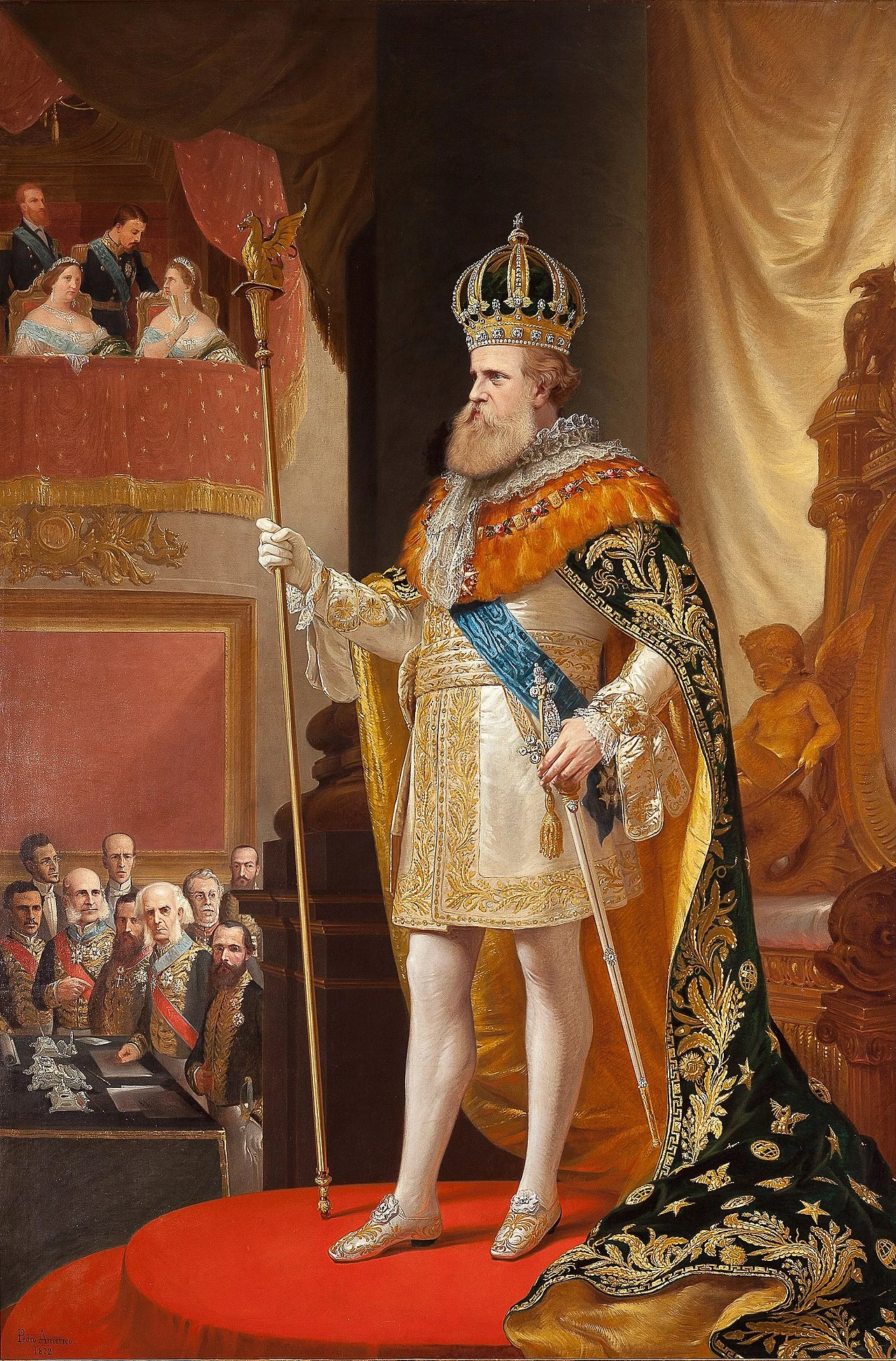
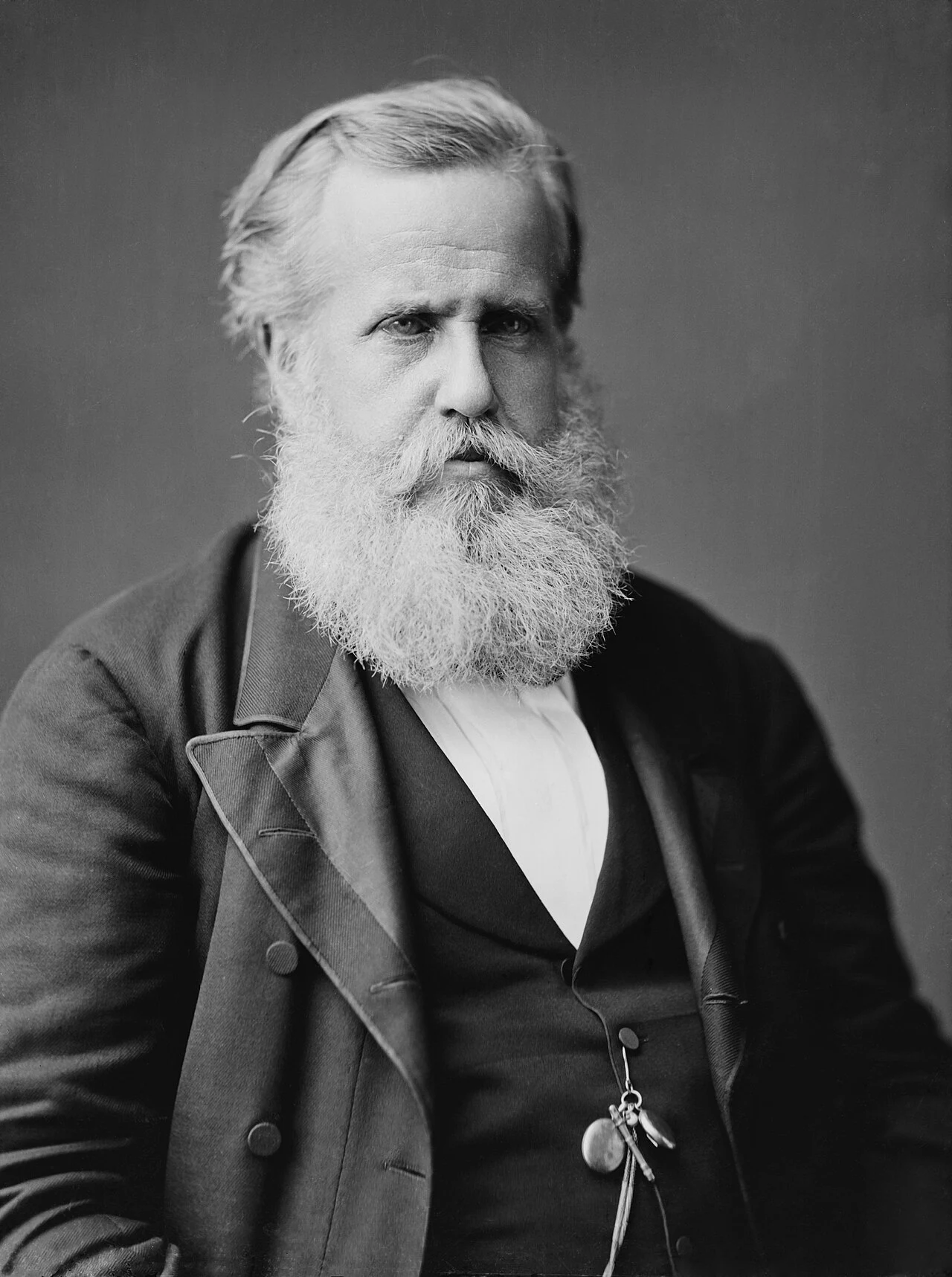
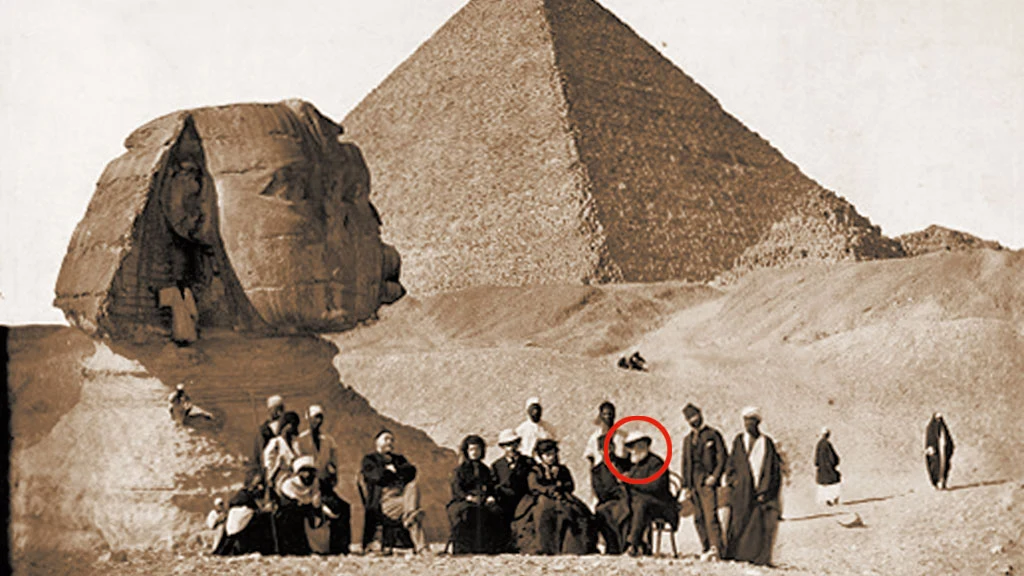
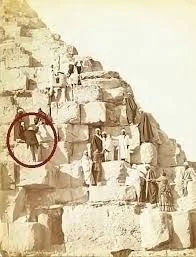
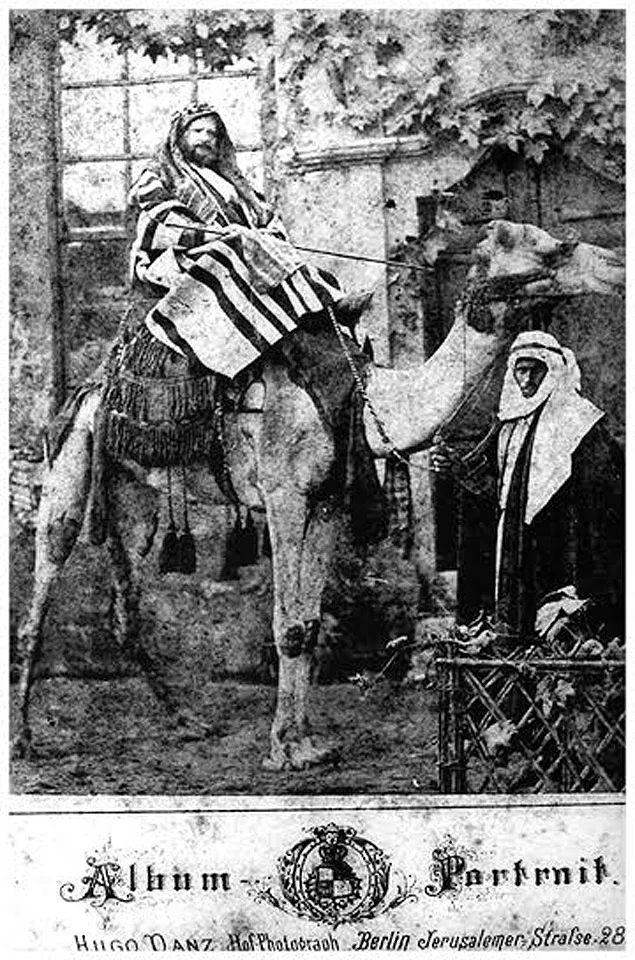
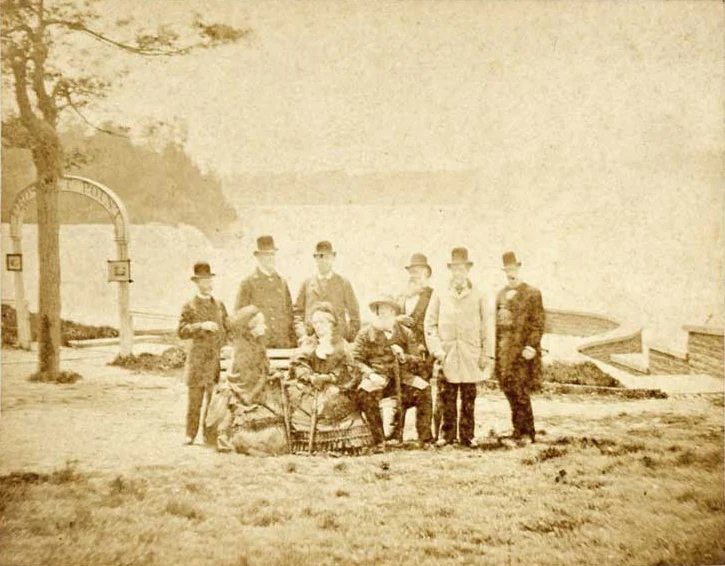











 Preid Montz
Preid Montz 



 TWENTY-FIVE SNAKES POUR OUT YOUR EYES
TWENTY-FIVE SNAKES POUR OUT YOUR EYES 





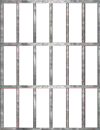
 I am a Spiderman CRUSADER
I am a Spiderman CRUSADER 


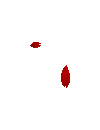






 10 days
10 days 
























 keep real siege neighbors down.
keep real siege neighbors down.


















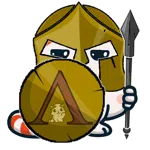































 🦄
🦄 🐴
🐴 🐎
🐎 🎠
🎠 🦓
🦓

